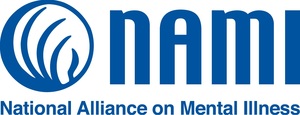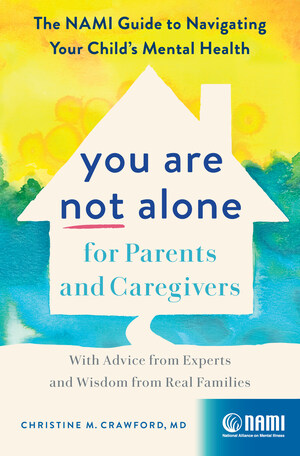ARLINGTON, Va., Sept. 21 /PRNewswire-USNewswire/ -- The National Alliance on Mental Illness (NAMI) has issued a third alert in an Election 2010 series reminding editors, reporters and others to ask all candidates what they intend to do about the nation's mental health crisis.
(Logo: http://www.newscom.com/cgi-bin/prnh/20100216/NAMILOGO)
(Logo: http://photos.prnewswire.com/prnh/20100216/NAMILOGO)
State budget crises across the country have led to devastating cuts in mental health services, putting lives at risk, even as demand has risen sharply during the recession. Unemployed persons are four times more likely than others to have symptoms of mental illness.
Over the last two years, 10 states are considered to have made the deepest cuts in mental health care. Just how deep? Figures are hard to come by—in part, NAMI believes, because of their political sensitivity. News organizations may have better luck in asking state mental health authorities (SMHAs).
- Arizona
- Illinois
- Indiana
- Louisiana
- Michigan
- New York
- Nevada
- North Carolina
- Ohio
- South Carolina
NAMI has compiled extensive news clips since the beginning of 2010 to help document the crisis. The National Association of State Mental Health Program Directors (NASMHPD) Research Institute also reported in Feb. 2010, based on preliminary data from 45 states, that:
- Total SMHA budget reductions from FY2009 to FY2011 were about $2 billion.
- Approximately 90 percent of SMHAs were experiencing budget cuts in FY2010. Almost 75 percent had experienced cuts in FY2009 and the same level proportion expected cuts in FY2011.
- Over 50 percent have responded by cutting community mental health services and reducing the number of people served.
- At the same time, SMHAs experienced increased demand for community services, including crisis services, emergency rooms and hospital acute care.
- The impact of cuts to Medicaid-funded programs has been softened only through use of stimulus funds. At the same time, almost 60 percent of SMHAs cut services to indigent persons without Medicaid.
Congress bears some of the responsibility, having cut and then frozen mental health block grants over the past 10 years.
Cutting mental health may seem penny-wise, but it's pound-foolish.
Mental health cuts end up costing all of us more through lost jobs and careers, broken families, more homelessness, higher insurance costs, more welfare and much more expensive costs for hospital emergency rooms, nursing homes, schools, police and courts, jails and prisons.
Previous Election Alerts
About NAMI
NAMI is the nation's largest grassroots mental health organization dedicated to improving the lives of individuals and families affected by mental illness. NAMI has over 1100 state and local affiliates that engage in research, education, support and advocacy. NAMI is a non-partisan, non-profit organization and does not endorse political candidates.
http://twitter.com/namicommunicate
http://www.facebook.com/officialNAMI
SOURCE National Alliance on Mental Illness
WANT YOUR COMPANY'S NEWS FEATURED ON PRNEWSWIRE.COM?
Newsrooms &
Influencers
Digital Media
Outlets
Journalists
Opted In






Share this article